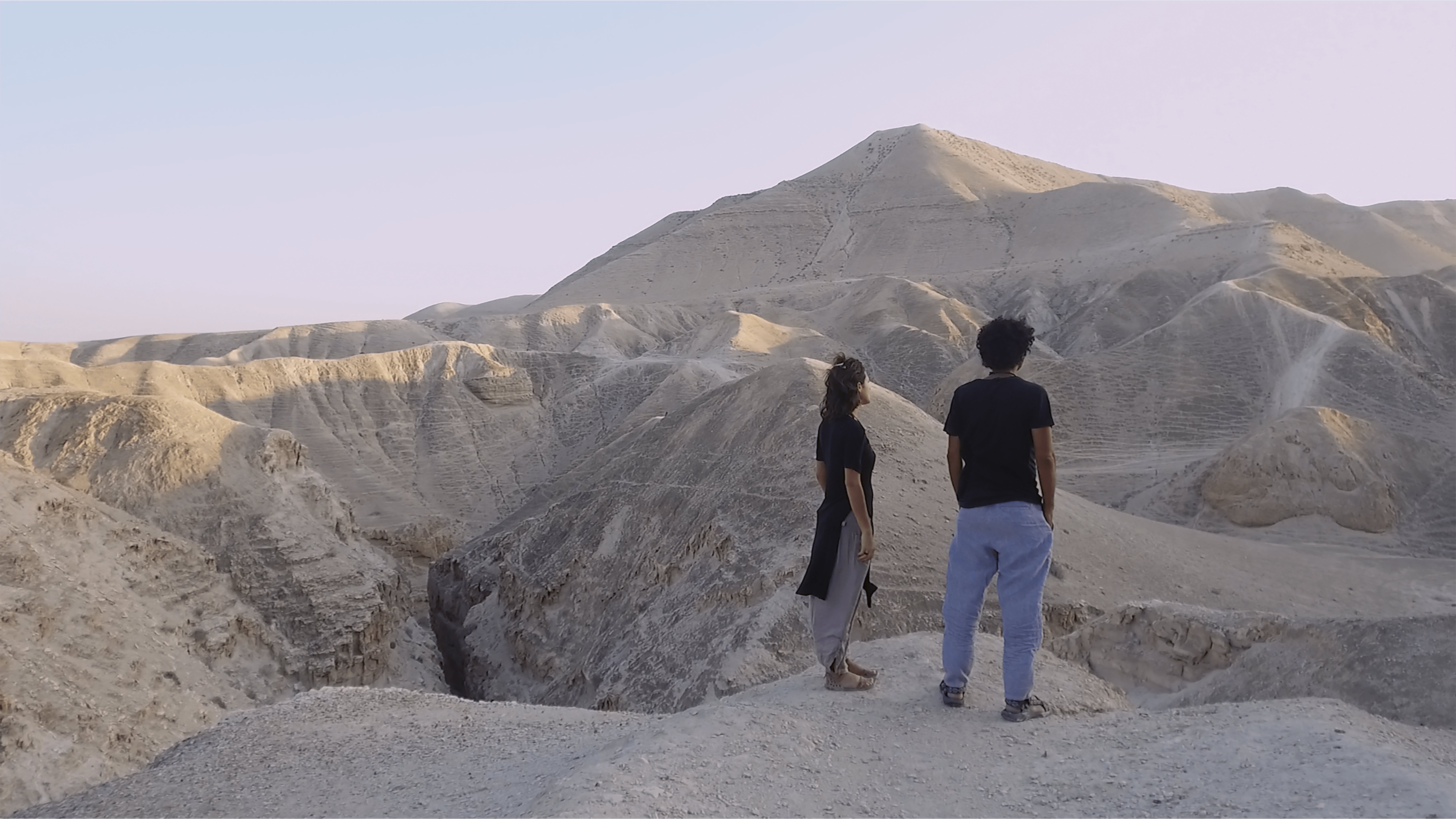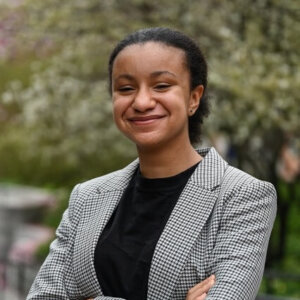These Israelis and Palestinians aren’t sworn enemies — in a new documentary, they work together towards peace
Joy Sela’s ‘The Other’ shows Israelis and Palestinians finding common ground.

An Israeli woman and Palestinian man together in Joy Sela’s The Other. Courtesy of Joy Sela
When Joy Sela first started interviewing Israelis and Palestinians in 2017, she could not have predicted how pertinent her work would be in 2024.
Her debut film The Other, a documentary about Israelis and Palestinians fighting together for peace, started from her desire as an Israeli-American to learn more about the lives of Palestinians living in Israel and the occupied territories. Sela’s intention, she told me in an interview, was to document her learning process, which involved hearing the stories of many different Israelis and Palestinians learning how to humanize one another.
At the very start of the film we are introduced to two men, both of whom have lost children. Rami, an Israeli, lost his 14 year-old daughter Smadar in a suicide bombing, and Bassam, who is Palestinian, lost his 10-year-old daughter Abir when she was shot in the head by an Israeli Border Patrol Officer. One would think that the two men would be enemies, but they sit side by side recounting their losses, bonding as two human beings mourning the deaths of their children.
This scene captures the essence of the film, which is filled with many more stories of senseless violence but also stories of connection and hope. Abir’s father shares that over 30 Israeli families came to the hospital to pray for her, before she succumbed to her wounds.
The Other is an eye-opening look at just how systematically separated the two societies are, even though they are neighbors. The restrictions on where Israelis and especially Palestinians are allowed to go means that members of each group could spend the majority of their formative years never meeting someone from “the other” side.
This phenomenon alone is so complicated and intricate that an entire film could be made about it alone. But Sela also wanted to show Israelis and Palestinians who want to learn about one another and be in community with each other.
She interviewed musicians such as the Israeli-Palestinian band System Ali and Palestinian rapper SAZ who use their work to start intercultural dialogues. She also spoke to educators, activists, and members of a cross-cultural bereaved parents group, capturing the many ways people are trying to bring Israelis and Palestinians together. The breadth of subjects is impressive, though sometimes it comes at the expense of depth.
The Other initially wrapped production in 2023 but after the Hamas attack on Oct. 7 and the subsequent war, Sela made the choice to go back to Israel and revisit her film subjects, footage that’s included in an updated version of the documentary.
A number of them remained committed to working across cultural divisions for peace. Ahmed, a Palestinian who had lost over 60 family members in Gaza at the time of filming, emphasized that separation and isolation would only make the situation worse.
Sela, however, told me that her subjects represented a minority and that many Israelis and Palestinians have become completely disillusioned since Oct. 7 and those who continue to believe in peace are often treated as social pariahs. Both Palestinians and Israelis involved in the bereaved families circle spoke about being ridiculed by their community for working with “the other.”
Sela, herself, initially did not tell her family that she was working on this film, out of fear for how they would react. This lack of understanding is exactly what The Other is trying to combat.
“People that are more critical or hard line on one side or the other, they actually look at these more middle-ground types as the fake and the fluffy bullshit or whatever,” Sela said. “It’s actually a much more lonely and complicated place to be because it’s a lot easier to just stay rooted in what you think you understand.”
“They’re a fringe group that really is believing in something better and trying to put that into action. It’s very difficult and it’s very lonely and it’s very emotionally taxing.”
Despite the hardships that come with this work, the rewards are worth it, Sela told me. At several screenings, she said, members of both the Jewish and Palestinian diaspora came up to her to thank her for the film.
“It’s a testament that we did this right,” Sela said.
The Other will be screening at the 34th New York Jewish Film Festival on Jan. 22, 5:30pm.
Correction: An earlier version of this story gave an incorrect date for when Sela started interviewing Israelis and Palestinians. It was 2017, not 2016.
















